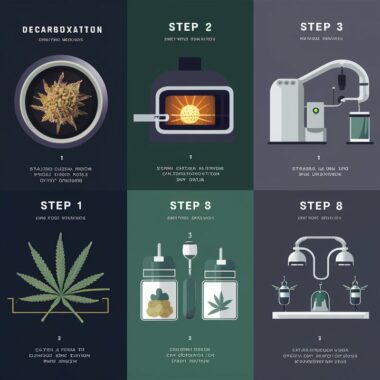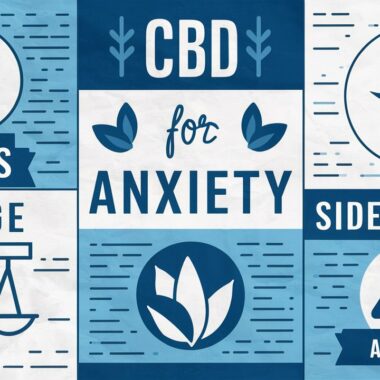Medical marijuana has been a controversial topic for many years, but it has recently gained acceptance as a treatment option for various medical conditions. In states where medical marijuana is legal, patients can obtain a medical marijuana card, allowing them to purchase and use marijuana for medicinal purposes. This article provides a comprehensive guide on obtaining a medical marijuana card, eligibility criteria, the application process, and the benefits and risks associated with medical marijuana.
Key Takeaways
- Medical marijuana cards allow patients to purchase and use marijuana for medicinal purposes in states where it’s legal.
- Eligibility criteria include having a qualifying medical condition and obtaining a recommendation from a licensed physician.
- Benefits and risks should be weighed before using medical marijuana as a treatment option.
Understanding Medical Marijuana Card
A medical marijuana card is an identification card that allows patients with qualifying health conditions to purchase and use marijuana legally. This card, also known as a medical marijuana identification card (MMID) or cannabis card, is issued by the state where the patient resides after evaluation and approval by a licensed physician.
The following table shows the fees in Arkansas, as an example:
| Type of Application | Fee |
|---|---|
| Patient medical marijuana card application | $50.00 (non-refundable) |
| Caregiver medical marijuana card application and renewals | $50.00 (non-refundable) |
| Caregiver criminal background | $37 (non-refundable) |
| Visiting Patient | $50.00 (nonrefundable) |
| 90-day card | N/A |
A medical marijuana card allows patients with a qualifying medical condition to purchase and use medical marijuana legally. To obtain one, you need to be evaluated by a licensed physician, submit an application, and pay a fee.
Eligibility Criteria for Medical Marijuana Card
Medical Conditions
The first eligibility criterion is having a qualifying medical condition. These conditions vary by state, but typically include:
- Chronic pain
- Cancer
- Glaucoma
- HIV/AIDS
- Multiple sclerosis
- Epilepsy
- Crohn’s disease
- PTSD
Some states also consider conditions such as anxiety, depression, and insomnia.
Age Requirement
Patients must generally be at least 18 years old to apply for a medical marijuana card. Minors may apply with the consent of a parent or legal guardian in some states.
Proof of Residency
Patients must provide proof of residency in the state where they are applying. Acceptable documents include a driver’s license, state ID, utility bills, or a lease agreement.
Application Process for Medical Marijuana Card
Online Application
The first step is completing an online application. This requires personal information, a state-issued ID copy, and a valid email address and phone number.
Medical Evaluation
Next, patients must undergo a medical evaluation by a licensed physician. The physician will review the patient’s medical history and determine if they have a qualifying condition.
Payment and Approval
After the physician’s approval, patients must pay a state fee, typically between $50 and $200. The state will then review the application and, if approved, issue a medical marijuana card.
Benefits of Having a Medical Marijuana Card

Legal Protection
A medical marijuana card provides legal protection, allowing individuals to use, possess, and cultivate marijuana for medicinal purposes legally.
Access to Dispensaries
Cardholders have access to medical marijuana dispensaries offering a wide range of products, including higher CBD strains and professional consultations.
Cost-Effectiveness
Medical marijuana is often less expensive than recreational marijuana, and many states offer tax breaks for cardholders. Additionally, cardholders can typically purchase larger quantities, resulting in cost savings.
Renewal and Expiration of Medical Marijuana Card
Renewal Process
Patients must renew their medical marijuana cards annually. The renewal process involves updating medical records and consulting a licensed physician. It is advisable to renew 30 to 45 days before expiration.
Expiration Consequences
If a card expires, patients cannot legally purchase or possess marijuana. Some states allow a grace period, while others require immediate renewal for continued legal use.
Risks and Considerations
Potential Health Risks
Medical marijuana can have side effects, such as:
- Increased heart rate
- Decreased blood pressure
- Dizziness or lightheadedness
- Impaired memory and concentration
- Impaired motor skills
- Respiratory problems (if smoked)
Legal Implications
Despite state-level legality, medical marijuana remains illegal federally. This can lead to legal issues and potential discrimination in the workplace or other areas of life.
Conclusion
Obtaining a medical marijuana card involves understanding state laws, meeting eligibility criteria, completing an application process, and weighing the benefits and risks. While it offers significant benefits for those with qualifying conditions, it’s essential to consider potential health risks and legal implications. Always consult with a healthcare professional and adhere to state regulations.
- CBD Cream for Neck Pain Relief: A Comprehensive Guide to Benefits, Usage, and Effectiveness - September 13, 2024
- Medical Marijuana Card: How to Get One and What You Need to Know - September 13, 2024
- CBD For Anxiety: Uses, Dosage And Side Effects - September 13, 2024
















